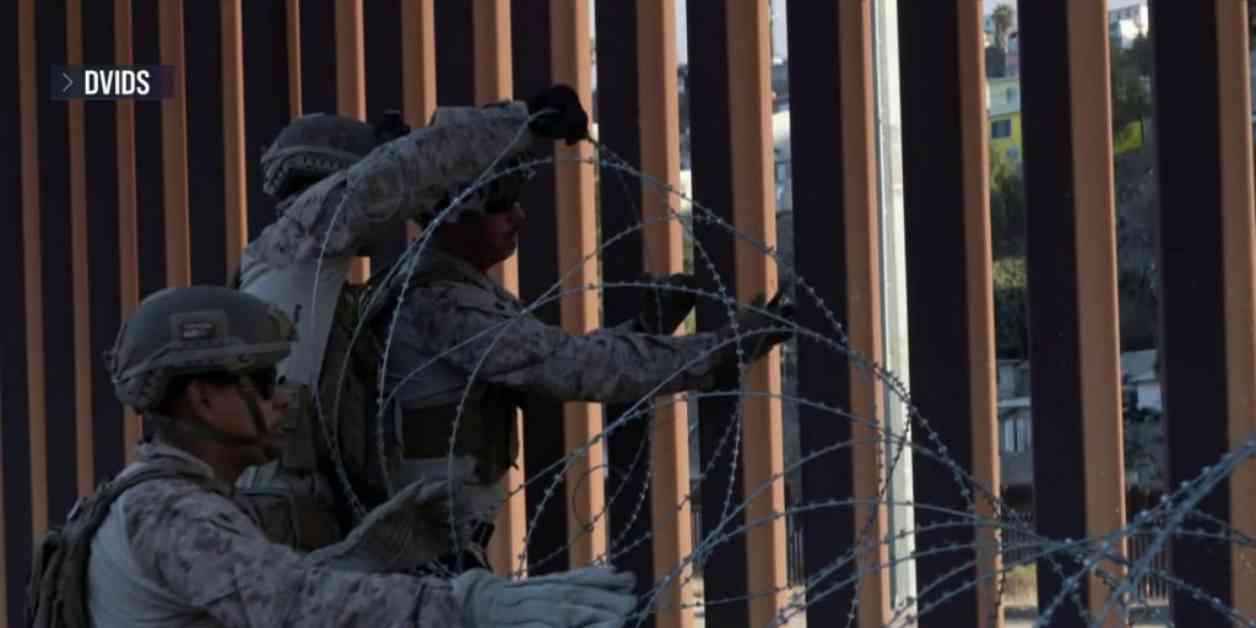Title: U.S. Military Ramps Up Presence on Southern Border in Immigration Crackdown
Amidst escalating tensions over immigration policy, the United States has taken a bold step in deploying military forces to the southern border. This move comes in response to President Trump’s firm stance on securing the nation’s boundaries and cracking down on illegal immigration. With the spotlight firmly on this controversial decision, the implications and potential ramifications of this action are being closely scrutinized by both supporters and critics alike.
Unprecedented Military Presence Signals Shift in Immigration Strategy
The recent decision to station U.S. military personnel along the southern border marks a significant departure from traditional immigration enforcement tactics. This move underscores the administration’s commitment to fortifying the nation’s borders and preventing illegal crossings. The sight of armed forces patrolling the border has sparked debate and raised questions about the appropriate role of the military in civilian matters.
Expert Perspectives on the Legal and Ethical Implications
Legal experts and civil rights advocates have raised concerns about the legality and constitutionality of deploying military forces in a domestic law enforcement capacity. The Posse Comitatus Act, which restricts the use of federal military personnel for law enforcement purposes, has been cited as a potential legal hurdle. Moreover, the ethical implications of using armed forces to handle immigration enforcement have stirred a broader conversation about the militarization of border security.
Community Reactions and Humanitarian Concerns
As news of the military presence on the southern border spreads, communities in border states are grappling with the immediate impact of this development. Immigrant advocacy groups and humanitarian organizations have expressed alarm over the potential consequences for asylum seekers and vulnerable populations. The human face of immigration policy is brought into sharp focus as families and individuals navigate the complex web of legal and logistical challenges posed by heightened border security measures.
Political Fallout and Diplomatic Ramifications
The decision to deploy military forces to the southern border has reverberated across the political landscape, with lawmakers on both sides of the aisle weighing in on the controversial move. The international community is also closely monitoring the situation, as the U.S. government’s approach to immigration has far-reaching implications for diplomatic relations and global perceptions. The intersection of national security, immigration policy, and human rights is a complex and contentious terrain that demands careful consideration and thoughtful dialogue.
Looking Ahead: Uncertainty and Unanswered Questions
As the U.S. military presence on the southern border continues to unfold, one thing remains certain: the debate over immigration policy and border security is far from over. The coming days and weeks are likely to bring further developments, challenges, and opportunities for reflection and action. In a rapidly changing political climate, the need for informed and engaged discourse on these critical issues has never been more pressing.


